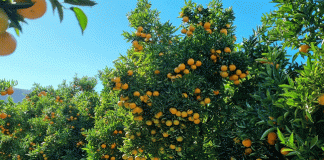According to Dr John Roche, managing director of consultancy company Down to Earth Advice Ltd in New Zealand, there was increasing public concern about the impact of farming on the environment and dairy farmers can expect to come under close scrutiny as consumers become more aware of the carbon footprint of dairy cows. He said farmers will have to focus on decreasing the carbon footprint per litre of milk produced and one way of doing this was to improve milk production per cow.
Roche was one of the speakers at the Elsenburg Dairy Information Day that was held at Delvera farm near Stellenbosch recently.
He said researchers in the US found that the carbon footprint per dairy cow doubled between 1944 and 2007, but since this increase appeared to go hand in hand with higher milk yields, the carbon footprint per litre of milk had decreased somewhat.
However, simply driving higher production would not ensure the sustainability of dairy farming businesses. “You can’t only focus on environmental sustainability, you also have to keep economic sustainability in mind. “We have been trained to believe that the more output you get from an animal, the more profitable your system will be, but that is often not the case,” said Roche. He said farmers had to look at their operating profits versus operating expenses.
“It is not about how many litres of milk every cow produces, but rather about how many cents it costs to produce a litre of milk,” he said. He said that past research showed that cow fertility may decline when milk production increases which seriously drew into question the sustainability of high milk production. However, he said newer research showed that good fertility and milk production was not necessarily mutually exclusive as long as farmers selected the right genetics. Better genetics would drive sustainable dairy farming in the future. He added that technology, such as heat detection software, would also play a bigger role.












